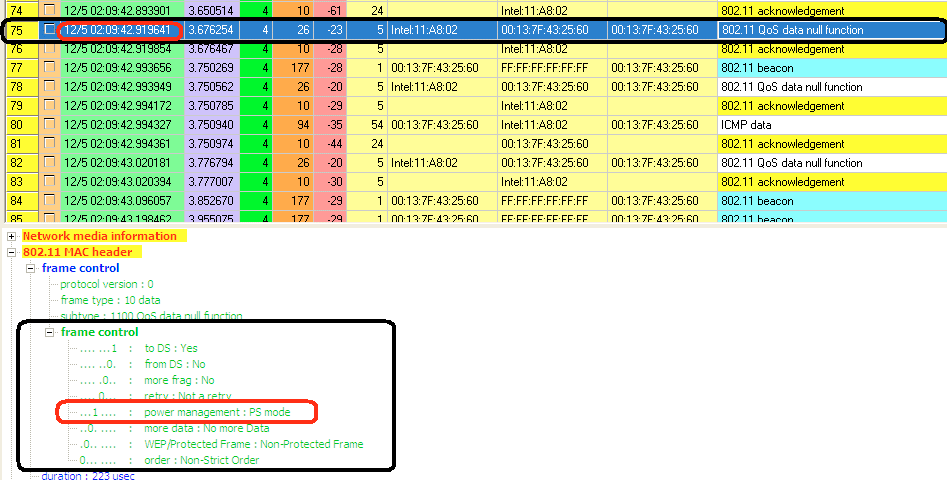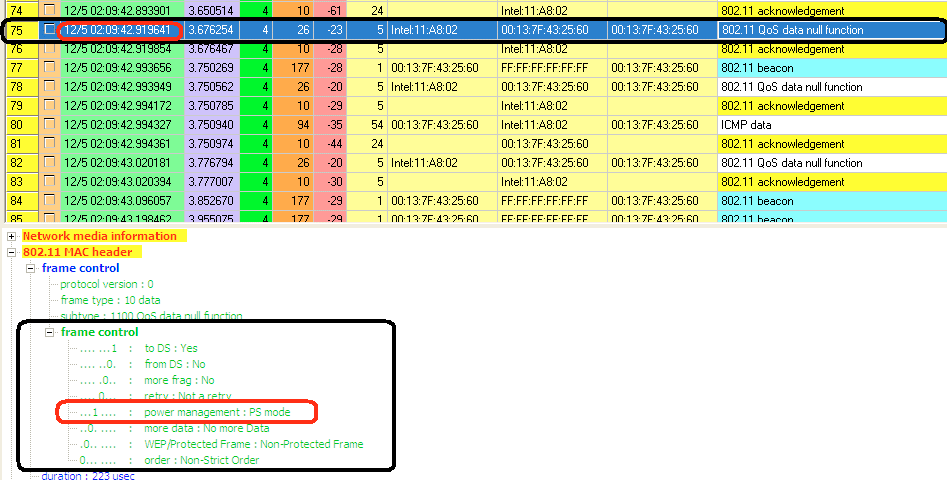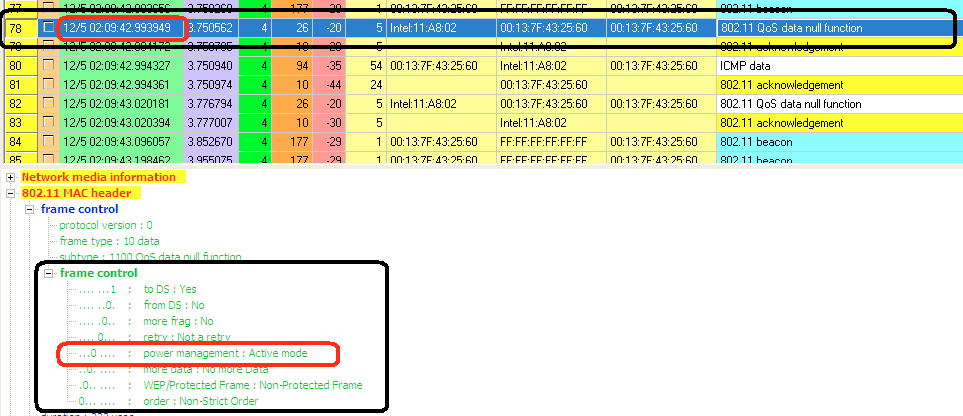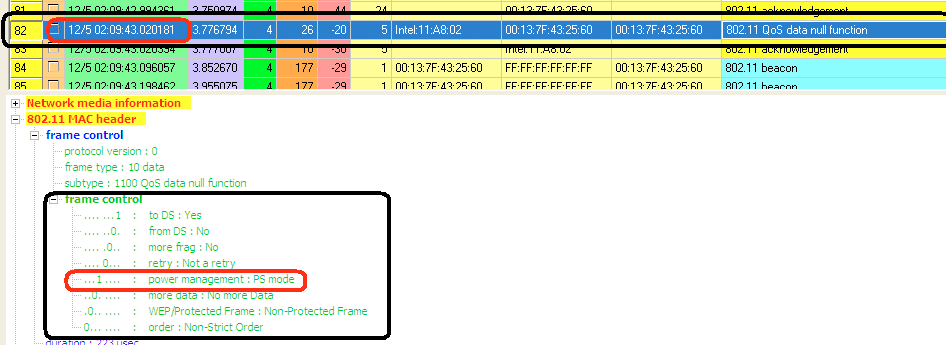/*
* Copyright (c) HiSilicon (Shanghai) Technologies Co., Ltd. 2022-2022. All rights reserved.
* Description: hsan pinctrl driver.
* Author : hsan
* Create : 2022-10-18
* History: Init.
*/
#include <linux/io.h>
#include <linux/module.h>
#include <linux/of_device.h>
#include <linux/platform_device.h>
#include <linux/pinctrl/pinctrl.h>
#include <linux/pinctrl/pinconf-generic.h>
#include "hi_types.h"
#include "hi_pinctrl.h"
#define IOSEL0 0x00
#define IOSEL1 0x04
#define JTAG_SEL 0x08
#define LVL1_SEL_L 0x0c
#define LVL1_SEL_H 0x10
#define NULL_BIT 0x01
union hi_pin_cfg_reg_luofu {
uint32_t value;
struct {
uint32_t pu : 1; /* pull up */
uint32_t pd : 1; /* pull down */
uint32_t ds : 3; /* drive strength */
uint32_t sten : 1; /* slow rate enable */
uint32_t pocfgb : 1; /* power on configuration bit */
uint32_t ien : 1; /* reserved */
uint32_t in : 1; /* input value */
uint32_t oen : 1; /* output enable */
uint32_t out : 1; /* output value */
uint32_t rsv0 : 21;
} bits;
};
hi_peri_pindata(0, 0x000, IOSEL0, 0, hi_func_name(gpio),
LVL1_SEL_H, 7, hi_func_name(led0), /* LED1 */
LVL1_SEL_L, NULL_BIT, hi_func_name(null),
LVL1_SEL_L, NULL_BIT, hi_func_name(null),
LVL1_SEL_L, NULL_BIT, hi_func_name(null));
hi_peri_pindata(1, 0x004, IOSEL0, 1, hi_func_name(gpio),
LVL1_SEL_H, 6, hi_func_name(led0), /* LED0 */
LVL1_SEL_L, NULL_BIT, hi_func_name(null),
LVL1_SEL_L, NULL_BIT, hi_func_name(null),
LVL1_SEL_L, NULL_BIT, hi_func_name(null));
hi_peri_pindata(2, 0x008, IOSEL0, 2, hi_func_name(jtag_gpio2),
LVL1_SEL_H, 8, hi_func_name(eth_act_led0), /* ETH_ACK0 */
LVL1_SEL_L, NULL_BIT, hi_func_name(null),
LVL1_SEL_L, NULL_BIT, hi_func_name(null),
LVL1_SEL_L, NULL_BIT, hi_func_name(null));
hi_peri_pindata(3, 0x00c, IOSEL0, 3, hi_func_name(jtag_gpio3),
LVL1_SEL_H, 9, hi_func_name(eth_act_led1), /* ETH_ACK1 */
LVL1_SEL_L, NULL_BIT, hi_func_name(null),
LVL1_SEL_L, NULL_BIT, hi_func_name(null),
LVL1_SEL_L, NULL_BIT, hi_func_name(null));
hi_peri_pindata(4, 0x010, IOSEL0, 4, hi_func_name(jtag_gpio4),
LVL1_SEL_H, 10, hi_func_name(eth_act_led2), /* ETH_ACK2 */
LVL1_SEL_L, NULL_BIT, hi_func_name(null),
LVL1_SEL_L, NULL_BIT, hi_func_name(null),
LVL1_SEL_L, NULL_BIT, hi_func_name(null));
hi_peri_pindata(5, 0x014, IOSEL0, 5, hi_func_name(jtag_gpio5),
LVL1_SEL_H, 11, hi_func_name(eth_act_led3), /* ETH_ACK3 */
LVL1_SEL_L, NULL_BIT, hi_func_name(null),
LVL1_SEL_L, NULL_BIT, hi_func_name(null),
LVL1_SEL_L, NULL_BIT, hi_func_name(null));
hi_peri_pindata(6, 0x018, LVL1_SEL_L, NULL_BIT, hi_func_name(null),
LVL1_SEL_L, NULL_BIT, hi_func_name(null),
LVL1_SEL_L, NULL_BIT, hi_func_name(null),
LVL1_SEL_L, NULL_BIT, hi_func_name(null),
LVL1_SEL_L, NULL_BIT, hi_func_name(null));
hi_peri_pindata(7, 0x01c, IOSEL0, 7, hi_func_name(gpio),
LVL1_SEL_H, 12, hi_func_name(eth_act_led4), /* ETH_ACK4 */
LVL1_SEL_L, NULL_BIT, hi_func_name(null),
LVL1_SEL_L, NULL_BIT, hi_func_name(null),
LVL1_SEL_L, NULL_BIT, hi_func_name(null));
hi_peri_pindata(8, 0x020, IOSEL0, 8, hi_func_name(gpio),
LVL1_SEL_L, 0, hi_func_name(avs), /* CPU_VG */
LVL1_SEL_L, NULL_BIT, hi_func_name(null),
LVL1_SEL_L, NULL_BIT, hi_func_name(null),
LVL1_SEL_L, NULL_BIT, hi_func_name(null));
hi_peri_pindata(9, 0x024, IOSEL0, 9, hi_func_name(gpio),
LVL1_SEL_L, 24, hi_func_name(phy_clk), /* PHY_REF_CLK */
LVL1_SEL_L, NULL_BIT, hi_func_name(null),
LVL1_SEL_L, NULL_BIT, hi_func_name(null),
LVL1_SEL_L, NULL_BIT, hi_func_name(null));
hi_peri_pindata(10, 0x028, IOSEL0, 10, hi_func_name(gpio),
LVL1_SEL_H, 21, hi_func_name(mdio1), /* MDC1 MDIO CLK */
LVL1_SEL_L, NULL_BIT, hi_func_name(null),
LVL1_SEL_L, NULL_BIT, hi_func_name(null),
LVL1_SEL_L, NULL_BIT, hi_func_name(null));
hi_peri_pindata(11, 0x02c, IOSEL0, 11, hi_func_name(gpio),
LVL1_SEL_H, 21, hi_func_name(mdio1), /* MDIO DATA */
LVL1_SEL_L, NULL_BIT, hi_func_name(null),
LVL1_SEL_L, NULL_BIT, hi_func_name(null),
LVL1_SEL_L, NULL_BIT, hi_func_name(null));
hi_peri_pindata(12, 0x030, IOSEL0, 12, hi_func_name(gpio),
LVL1_SEL_L, 11, hi_func_name(rgmii0), /* RGMII_TDATA3 */
LVL1_SEL_L, NULL_BIT, hi_func_name(null),
LVL1_SEL_L, NULL_BIT, hi_func_name(null),
LVL1_SEL_L, NULL_BIT, hi_func_name(null));
hi_peri_pindata(13, 0x034, IOSEL0, 13, hi_func_name(gpio),
LVL1_SEL_L, 11, hi_func_name(rgmii0), /* RGMII_TDATA2 */
LVL1_SEL_L, 23, hi_func_name(spi), /* SPI_RXD */
LVL1_SEL_L, NULL_BIT, hi_func_name(null),
LVL1_SEL_L, NULL_BIT, hi_func_name(null));
hi_peri_pindata(14, 0x038, IOSEL0, 14, hi_func_name(gpio),
LVL1_SEL_L, 11, hi_func_name(rgmii0), /* RGMII_TDATA1 */
LVL1_SEL_L, 23, hi_func_name(spi), /* SPI_TXD */
LVL1_SEL_L, NULL_BIT, hi_func_name(null),
LVL1_SEL_L, NULL_BIT, hi_func_name(null));
hi_peri_pindata(15, 0x03c, IOSEL0, 15, hi_func_name(gpio),
LVL1_SEL_L, 11, hi_func_name(rgmii0), /* RGMII_TDATA0 */
LVL1_SEL_L, 23, hi_func_name(spi), /* SPI_CLK */
LVL1_SEL_L, NULL_BIT, hi_func_name(null),
LVL1_SEL_L, NULL_BIT, hi_func_name(null));
hi_peri_pindata(16, 0x040, IOSEL0, 16, hi_func_name(gpio),
LVL1_SEL_L, 11, hi_func_name(rgmii0), /* RGMII_TXCLK */
LVL1_SEL_L, 9, hi_func_name(uart0), /* UART0_SIN */
LVL1_SEL_L, NULL_BIT, hi_func_name(null),
LVL1_SEL_L, NULL_BIT, hi_func_name(null));
hi_peri_pindata(17, 0x044, IOSEL0, 17, hi_func_name(gpio),
LVL1_SEL_L, 11, hi_func_name(rgmii0), /* RGMII_TXEN */
LVL1_SEL_L, NULL_BIT, hi_func_name(null),
LVL1_SEL_L, NULL_BIT, hi_func_name(null),
LVL1_SEL_L, NULL_BIT, hi_func_name(null));
hi_peri_pindata(18, 0x048, IOSEL0, 18, hi_func_name(gpio),
LVL1_SEL_L, 11, hi_func_name(rgmii0), /* RGMII_RXCLK */
LVL1_SEL_L, 10, hi_func_name(uart0), /* UART0_CTS_N */
LVL1_SEL_L, NULL_BIT, hi_func_name(null),
LVL1_SEL_L, NULL_BIT, hi_func_name(null));
hi_peri_pindata(19, 0x04c, IOSEL0, 19, hi_func_name(gpio),
LVL1_SEL_L, 11, hi_func_name(rgmii0), /* RGMII_RXDV */
LVL1_SEL_L, 10, hi_func_name(uart0), /* UART0_RTS_N */
LVL1_SEL_L, NULL_BIT, hi_func_name(null),
LVL1_SEL_L, NULL_BIT, hi_func_name(null));
hi_peri_pindata(20, 0x050, IOSEL0, 20, hi_func_name(gpio),
LVL1_SEL_L, 11, hi_func_name(rgmii0), /* RGMII_RDATA0 */
LVL1_SEL_H, 14, hi_func_name(led1), /* LED1_1 */
LVL1_SEL_L, NULL_BIT, hi_func_name(null),
LVL1_SEL_L, NULL_BIT, hi_func_name(null));
hi_peri_pindata(21, 0x054, IOSEL0, 21, hi_func_name(gpio),
LVL1_SEL_L, 11, hi_func_name(rgmii0), /* RGMII_RDATA1 */
LVL1_SEL_H, 13, hi_func_name(led1), /* LED0_0 */
LVL1_SEL_L, NULL_BIT, hi_func_name(null),
LVL1_SEL_L, NULL_BIT, hi_func_name(null));
hi_peri_pindata(22, 0x058, IOSEL0, 22, hi_func_name(gpio),
LVL1_SEL_L, 11, hi_func_name(rgmii0), /* RGMII_RDATA2 */
LVL1_SEL_L, 9, hi_func_name(uart0), /* UART0_SOUT */
LVL1_SEL_L, NULL_BIT, hi_func_name(null),
LVL1_SEL_L, NULL_BIT, hi_func_name(null));
hi_peri_pindata(23, 0x05c, IOSEL0, 23, hi_func_name(gpio),
LVL1_SEL_L, 11, hi_func_name(rgmii0), /* RGMII_RDATA3 */
LVL1_SEL_L, 22, hi_func_name(spi), /* SPI_CS0 */
LVL1_SEL_L, NULL_BIT, hi_func_name(null),
LVL1_SEL_L, NULL_BIT, hi_func_name(null));
hi_peri_pindata(24, 0x060, IOSEL0, 24, hi_func_name(gpio),
LVL1_SEL_L, 15, hi_func_name(i2c), /* I2C_M_SCL */
LVL1_SEL_L, NULL_BIT, hi_func_name(null),
LVL1_SEL_L, NULL_BIT, hi_func_name(null),
LVL1_SEL_L, NULL_BIT, hi_func_name(null));
hi_peri_pindata(25, 0x064, IOSEL0, 25, hi_func_name(gpio),
LVL1_SEL_L, 15, hi_func_name(i2c), /* I2C2_M_SDA */
LVL1_SEL_L, NULL_BIT, hi_func_name(null),
LVL1_SEL_L, NULL_BIT, hi_func_name(null),
LVL1_SEL_L, NULL_BIT, hi_func_name(null));
hi_peri_pindata(26, 0x068, IOSEL0, 26, hi_func_name(gpio),
LVL1_SEL_L, 14, hi_func_name(clk_test), /* TEST_CLK */
LVL1_SEL_L, NULL_BIT, hi_func_name(null),
LVL1_SEL_L, NULL_BIT, hi_func_name(null),
LVL1_SEL_L, NULL_BIT, hi_func_name(null));
hi_peri_pindata(27, 0x06c, IOSEL0, 27, hi_func_name(gpio),
LVL1_SEL_H, 17, hi_func_name(usb), /* USB_PWREN */
LVL1_SEL_L, NULL_BIT, hi_func_name(null),
LVL1_SEL_L, NULL_BIT, hi_func_name(null),
LVL1_SEL_L, NULL_BIT, hi_func_name(null));
hi_peri_pindata(28, 0x070, IOSEL0, 28, hi_func_name(gpio),
LVL1_SEL_H, 16, hi_func_name(usb), /* USB_OVRCUR */
LVL1_SEL_L, NULL_BIT, hi_func_name(null),
LVL1_SEL_L, NULL_BIT, hi_func_name(null),
LVL1_SEL_L, NULL_BIT, hi_func_name(null));
hi_peri_pindata(29, 0x074, LVL1_SEL_L, NULL_BIT, hi_func_name(null),
LVL1_SEL_L, NULL_BIT, hi_func_name(null),
LVL1_SEL_L, NULL_BIT, hi_func_name(null),
LVL1_SEL_L, NULL_BIT, hi_func_name(null),
LVL1_SEL_L, NULL_BIT, hi_func_name(null));
hi_peri_pindata(30, 0x078, IOSEL0, 30, hi_func_name(gpio),
LVL1_SEL_L, 2, hi_func_name(sfc), /* SFC_WP */
LVL1_SEL_L, NULL_BIT, hi_func_name(null),
LVL1_SEL_L, NULL_BIT, hi_func_name(null),
LVL1_SEL_L, NULL_BIT, hi_func_name(null));
hi_peri_pindata(31, 0x07c, LVL1_SEL_L, NULL_BIT, hi_func_name(null),
LVL1_SEL_L, NULL_BIT, hi_func_name(null),
LVL1_SEL_L, NULL_BIT, hi_func_name(null),
LVL1_SEL_L, NULL_BIT, hi_func_name(null),
LVL1_SEL_L, NULL_BIT, hi_func_name(null));
hi_peri_pindata(32, 0x080, LVL1_SEL_L, NULL_BIT, hi_func_name(null),
LVL1_SEL_L, NULL_BIT, hi_func_name(null),
LVL1_SEL_L, NULL_BIT, hi_func_name(null),
LVL1_SEL_L, NULL_BIT, hi_func_name(null),
LVL1_SEL_L, NULL_BIT, hi_func_name(null));
hi_peri_pindata(33, 0x084, IOSEL0, 1, hi_func_name(gpio),
LVL1_SEL_L, 3, hi_func_name(sfc), /* DFC_HOLD */
LVL1_SEL_L, NULL_BIT, hi_func_name(null),
LVL1_SEL_L, NULL_BIT, hi_func_name(null),
LVL1_SEL_L, NULL_BIT, hi_func_name(null));
hi_peri_pindata(34, 0x088, LVL1_SEL_L, NULL_BIT, hi_func_name(null),
LVL1_SEL_L, NULL_BIT, hi_func_name(null),
LVL1_SEL_L, NULL_BIT, hi_func_name(null),
LVL1_SEL_L, NULL_BIT, hi_func_name(null),
LVL1_SEL_L, NULL_BIT, hi_func_name(null));
hi_peri_pindata(35, 0x08c, IOSEL0, 3, hi_func_name(gpio),
LVL1_SEL_L, 7, hi_func_name(uart1), /* UART1_SIN */
LVL1_SEL_L, NULL_BIT, hi_func_name(null),
LVL1_SEL_L, NULL_BIT, hi_func_name(null),
LVL1_SEL_L, NULL_BIT, hi_func_name(null));
hi_peri_pindata(36, 0x090, IOSEL1, 3, hi_func_name(gpio),
LVL1_SEL_L, 7, hi_func_name(uart1), /* UART1_SIN */
LVL1_SEL_L, NULL_BIT, hi_func_name(null),
LVL1_SEL_L, NULL_BIT, hi_func_name(null),
LVL1_SEL_L, NULL_BIT, hi_func_name(null));
/* group */
hi_pinctrl_groups(sfc);
hi_pinctrl_groups(uart1);
hi_pinctrl_groups(uart0);
hi_pinctrl_groups(mdio1);
hi_pinctrl_groups(spi);
hi_pinctrl_groups(i2c);
hi_pinctrl_groups(rgmii0);
hi_pinctrl_groups(eth_act_led0);
hi_pinctrl_groups(eth_act_led1);
hi_pinctrl_groups(eth_act_led2);
hi_pinctrl_groups(eth_act_led3);
hi_pinctrl_groups(eth_act_led4);
hi_pinctrl_groups(led0);
hi_pinctrl_groups(led1);
hi_pinctrl_groups(clk_test);
hi_pinctrl_groups(avs);
hi_pinctrl_groups(phy_clk);
hi_pinctrl_groups(usb);
hi_pinctrl_groups(jtag_gpio2);
hi_pinctrl_groups(jtag_gpio3);
hi_pinctrl_groups(jtag_gpio4);
hi_pinctrl_groups(jtag_gpio5);
/* sfc */
static const uint32_t sfc_pins[] = {30, 33};
/* uart1 */
static const uint32_t uart1_pins[] = {35, 36};
/* uart0 */
static const uint32_t uart0_pins[] = {16, 18, 19, 22};
/* mdio */
static const uint32_t mdio1_pins[] = {10, 11};
/* spi */
static const uint32_t spi_pins[] = {13, 14, 15, 23};
/* i2c */
static const uint32_t i2c_pins[] = {24, 25};
/* rgmii */
static const uint32_t rgmii0_pins[] = {12, 13, 14, 15, 16, 17, 18, 19, 20, 21, 22, 23};
/* eth led */
static const uint32_t eth_act_led0_pins[] = {2};
static const uint32_t eth_act_led1_pins[] = {3};
static const uint32_t eth_act_led2_pins[] = {4};
static const uint32_t eth_act_led3_pins[] = {5};
static const uint32_t eth_act_led4_pins[] = {7};
/* led */
static const uint32_t led0_pins[] = {0, 1};
static const uint32_t led1_pins[] = {20, 21};
/* clk_test */
static const uint32_t clk_test_pins[] = {26};
/* avs */
static const uint32_t avs_pins[] = {8};
/* phy_clk */
static const uint32_t phy_clk_pins[] = {9};
/* usb */
static const uint32_t usb_pins[] = {27, 28};
/* jtag_gpio */
static const uint32_t jtag_gpio2_pins[] = {2};
static const uint32_t jtag_gpio3_pins[] = {3};
static const uint32_t jtag_gpio4_pins[] = {4};
static const uint32_t jtag_gpio5_pins[] = {5};
static struct pinctrl_pin_desc g_peri_pins[] = {
hi_pin(0),
hi_pin(1),
hi_pin(2),
hi_pin(3),
hi_pin(4),
hi_pin(5),
hi_pin(6),
hi_pin(7),
hi_pin(8),
hi_pin(9),
hi_pin(10),
hi_pin(11),
hi_pin(12),
hi_pin(13),
hi_pin(14),
hi_pin(15),
hi_pin(16),
hi_pin(17),
hi_pin(18),
hi_pin(19),
hi_pin(20),
hi_pin(21),
hi_pin(22),
hi_pin(23),
hi_pin(24),
hi_pin(25),
hi_pin(26),
hi_pin(27),
hi_pin(28),
hi_pin(29),
hi_pin(30),
hi_pin(31),
hi_pin(32),
hi_pin(33),
hi_pin(34),
hi_pin(35),
hi_pin(36),
};
static const struct hi_pmux_func g_peri_functions[] = {
hi_pinctrl_pmux_func(sfc),
hi_pinctrl_pmux_func(uart1),
hi_pinctrl_pmux_func(uart0),
hi_pinctrl_pmux_func(mdio1),
hi_pinctrl_pmux_func(spi),
hi_pinctrl_pmux_func(i2c),
hi_pinctrl_pmux_func(rgmii0),
hi_pinctrl_pmux_func(eth_act_led0),
hi_pinctrl_pmux_func(eth_act_led1),
hi_pinctrl_pmux_func(eth_act_led2),
hi_pinctrl_pmux_func(eth_act_led3),
hi_pinctrl_pmux_func(eth_act_led4),
hi_pinctrl_pmux_func(led0),
hi_pinctrl_pmux_func(led1),
hi_pinctrl_pmux_func(clk_test),
hi_pinctrl_pmux_func(avs),
hi_pinctrl_pmux_func(phy_clk),
hi_pinctrl_pmux_func(usb),
hi_pinctrl_pmux_func(jtag_gpio2),
hi_pinctrl_pmux_func(jtag_gpio3),
hi_pinctrl_pmux_func(jtag_gpio4),
hi_pinctrl_pmux_func(jtag_gpio5),
};
static struct hi_pin_group g_peri_groups[] = {
hi_pinctrl_pin_group(sfc),
hi_pinctrl_pin_group(uart1),
hi_pinctrl_pin_group(uart0),
hi_pinctrl_pin_group(mdio1),
hi_pinctrl_pin_group(spi),
hi_pinctrl_pin_group(i2c),
hi_pinctrl_pin_group(rgmii0),
hi_pinctrl_pin_group(eth_act_led0),
hi_pinctrl_pin_group(eth_act_led1),
hi_pinctrl_pin_group(eth_act_led2),
hi_pinctrl_pin_group(eth_act_led3),
hi_pinctrl_pin_group(eth_act_led4),
hi_pinctrl_pin_group(led0),
hi_pinctrl_pin_group(led1),
hi_pinctrl_pin_group(clk_test),
hi_pinctrl_pin_group(avs),
hi_pinctrl_pin_group(phy_clk),
hi_pinctrl_pin_group(usb),
hi_pinctrl_pin_group_with_sig_sel(jtag_gpio2, 0x08, 1, 1),
hi_pinctrl_pin_group_with_sig_sel(jtag_gpio3, 0x08, 1, 1),
hi_pinctrl_pin_group_with_sig_sel(jtag_gpio4, 0x08, 1, 1),
hi_pinctrl_pin_group_with_sig_sel(jtag_gpio5, 0x08, 1, 1),
};
static int32_t luofu_pin_config_get(struct hi_pinctrl_drvdata *data, struct hi_pin_drvdata *pin_data,
uintptr_t *config)
{
enum pin_config_param param = pinconf_to_config_param(*config);
union hi_pin_cfg_reg_luofu pin_cfg;
uint16_t arg;
pin_cfg.value = readl(data->virt_conf_base + pin_data->cfg_offset);
switch (param) {
case PIN_CONFIG_BIAS_PULL_DOWN:
arg = pin_cfg.bits.pd;
break;
case PIN_CONFIG_BIAS_PULL_UP:
arg = pin_cfg.bits.pu;
break;
case PIN_CONFIG_DRIVE_STRENGTH:
arg = pin_cfg.bits.ds;
break;
case PIN_CONFIG_INPUT_ENABLE:
arg = pin_cfg.bits.ien;
break;
case PIN_CONFIG_INPUT_SCHMITT_ENABLE:
arg = pin_cfg.bits.sten;
break;
case PIN_CONFIG_OUTPUT:
arg = pin_cfg.bits.out;
break;
default:
return -EINVAL;
}
*config = pinconf_to_config_packed(param, arg);
return 0;
}
static int luofu_pin_config_set(struct hi_pinctrl_drvdata *data, struct hi_pin_drvdata *pin_data,
uintptr_t *configs, uint32_t num_configs)
{
union hi_pin_cfg_reg_luofu pin_cfg;
enum pin_config_param param;
uint32_t idx;
uint16_t arg;
for (idx = 0; idx < num_configs; idx++) {
param = pinconf_to_config_param(configs[idx]);
arg = pinconf_to_config_argument(configs[idx]);
pin_cfg.value = readl(data->virt_conf_base + pin_data->cfg_offset);
switch (param) {
case PIN_CONFIG_BIAS_PULL_DOWN:
pin_cfg.bits.pd = arg;
break;
case PIN_CONFIG_BIAS_PULL_UP:
pin_cfg.bits.pu = arg;
break;
case PIN_CONFIG_DRIVE_STRENGTH:
pin_cfg.bits.ds = arg;
break;
case PIN_CONFIG_INPUT_ENABLE:
pin_cfg.bits.ien = arg;
break;
case PIN_CONFIG_INPUT_SCHMITT_ENABLE:
pin_cfg.bits.sten = arg;
break;
case PIN_CONFIG_OUTPUT:
pin_cfg.bits.out = arg;
break;
default:
return -EINVAL;
}
writel(pin_cfg.value, data->virt_conf_base + pin_data->cfg_offset);
}
return 0;
}
const struct hi_pinctrl_soc_data g_luofu_peri_pinctrl_soc_data = {
.name = "luofu-peripinctrl",
.pins = g_peri_pins,
.npins = ARRAY_SIZE(g_peri_pins),
.groups = g_peri_groups,
.ngroup = ARRAY_SIZE(g_peri_groups),
.funcs = g_peri_functions,
.nfunc = ARRAY_SIZE(g_peri_functions),
.pin_config_set = luofu_pin_config_set,
.pin_config_get = luofu_pin_config_get,
};
static const struct of_device_id g_luofu_pinctrl_match[] = {
{
.compatible = "hsan,luofu-peri-pinctrl",
.data = &g_luofu_peri_pinctrl_soc_data,
},
{}
};
MODULE_DEVICE_TABLE(of, g_luofu_pinctrl_match);
static int32_t luofu_pinctrl_probe(struct platform_device *pdev)
{
const struct of_device_id *match = of_match_device(g_luofu_pinctrl_match, &pdev->dev);
const struct hi_pinctrl_soc_data *soc_data = NULL;
if (match != NULL && match->data != NULL)
soc_data = match->data;
return hi_pinctrl_probe(pdev, soc_data);
}
static SIMPLE_DEV_PM_OPS(pinctrl_hi_pm_ops, hi_pinctrl_suspend, hi_pinctrl_resume);
static struct platform_driver g_luofu_pinctrl_driver = {
.probe = luofu_pinctrl_probe,
.remove = hi_pinctrl_remove,
.driver = {
.name = "luofu-pinctrl",
.of_match_table = g_luofu_pinctrl_match,
.pm = &pinctrl_hi_pm_ops,
},
};
module_platform_driver(g_luofu_pinctrl_driver);
MODULE_AUTHOR("hsan");
MODULE_DESCRIPTION("hsan pinctrl driver");
MODULE_LICENSE("GPL");
告诉我代码的功能和实现的什么?
最新发布
 and
the NULL frame confirmed by idea and backed my findings as it pertained to a wireless issue I was troubleshooting
and
the NULL frame confirmed by idea and backed my findings as it pertained to a wireless issue I was troubleshooting







 本文深入探讨了802.11标准中的NULL帧及其在无线网络中的作用,特别是它如何帮助客户端进行节能管理和无缝漫游。
本文深入探讨了802.11标准中的NULL帧及其在无线网络中的作用,特别是它如何帮助客户端进行节能管理和无缝漫游。
















 9658
9658

 被折叠的 条评论
为什么被折叠?
被折叠的 条评论
为什么被折叠?








